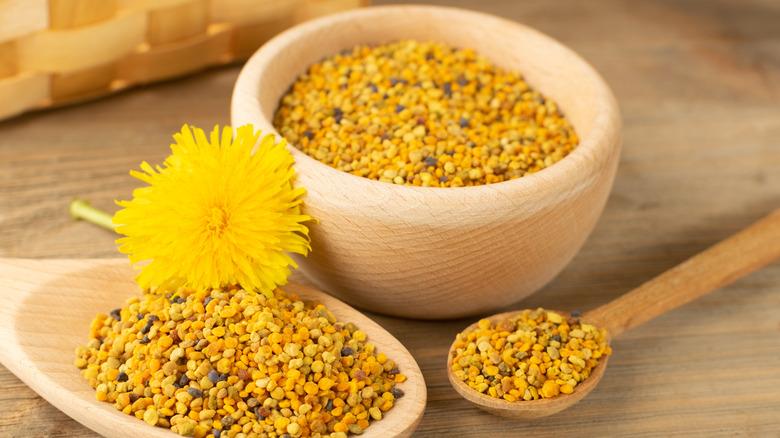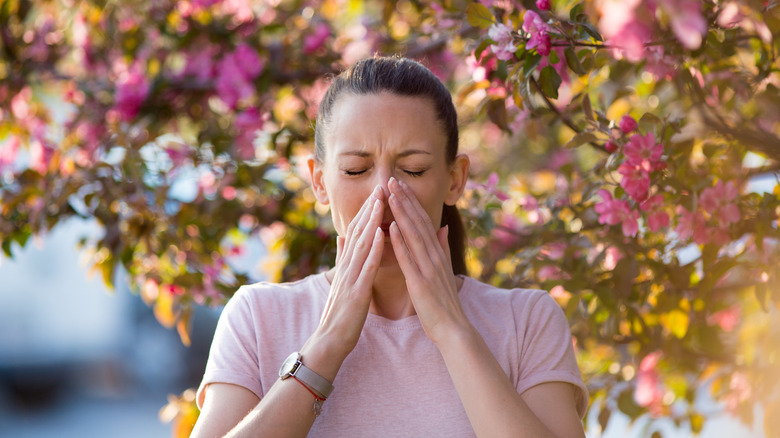What Taking Bee Pollen Does To Your Body
Bee pollen, a combination of pollen, honey, enzymes, and other compounds, is touted for its health benefits. Amazingly, some sources of bee pollen contain over 250 bioactive ingredients including protein, vitamins, minerals, and antioxidants. If taken on a regular basis, bee pollen could improve your health in many ways (via Healthline).
Studies conducted on animals show that bee pollen can lower blood cholesterol levels, including the "bad" kind of cholesterol, which helps reduce the risk for heart attack and stroke. In addition, it reduces the plaque that builds up in our arteries, which might help reduce the occurrence of blood clots (via Medical News Today).
Experts at Healthline reveal that bee pollen might also lower your risk for chronic diseases caused by free radicals because it is loaded with antioxidants. Additional animal research indicated that antioxidants decreased inflammation, fought infections, halted tumor growth, and killed unhealthy bacteria like E. coli. Furthermore, its antioxidant qualities can assist the body in healing wounds.
Bee pollen helps fight against various ailments
Taking bee pollen on a regular basis could also help your body fight against other ailments. If you don't have an allergy to the pollen itself, it could reduce allergy symptoms. Research from 2009 showed that it slowed the release of histamines in the body (via Health).
In addition, animal studies suggest that bee pollen might also boost bone health, which could protect against osteoporosis (via Verywell Health). Research also found that bee pollen could improve liver function and even protect the liver from toxins. Moreover, it promotes healing in the liver overall (via Healthline).
If you are allergic to bee stings, you should check with your doctor before consuming any bee pollen as it might trigger a reaction. In addition, bee pollen could interfere with blood thinners, which could result in more bleeding or bruising. If you are pregnant, you should also speak with your doctor before taking bee pollen (via Medical News Today).


